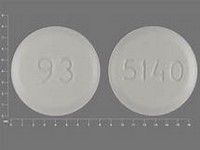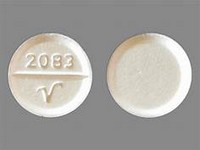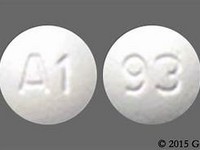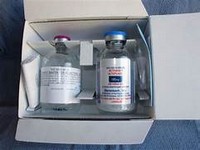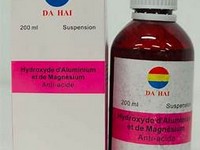Baclofen
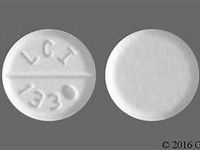
Baclofen
CLINICAL USE
Chronic severe spasticity of voluntary muscles
DOSE IN NORMAL RENAL FUNCTION
5 mg, 3 times a day; increase dose gradually up to 100 mg/day
PHARMACOKINETICS
Molecular weight :213.7 %Protein binding :30 %Excreted unchanged in urine : 70 Volume of distribution (L/kg) :0.7half-life – normal/ESRD (hrs) :3–4/– DOSE IN RENAL IMPAIRMENT
GFR (mL/MIN)
20 to 50 : 5 mg, 3 times a day and titrate according to response 10 to 20 : 5 mg, twice a day and titrate according to response <10 : 5 mg, once a day and titrate according to response DOSE IN PATIENTS UNDERGOING RENAL REPLACEMENT THERAPIES
CAPD :Unknown dialysability. Dose as in GFR <10 mL/min HD :Dialysed.1 Dose as in GFR <10 : mL/minHDF/high flux :Dialysed.1 Dose as in GFR <10 : mL/minCAV/VVHD :Unknown dialysability. Dose as in GFR 10 to 20 mL/min IMPORTANT DRUG INTERACTIONS
Potentially hazardous interactions with other drugsAnti-arrhythmics: enhanced muscle relaxant effect with procainamideAntidepressants: enhanced muscle relaxant effect with tricyclicsAntihypertensives: enhanced hypotensive effect ADMINISTRATION
Reconstition
– Route
Oral, intrathecal injection Rate of Administration
–Comments
Take with or after food Baclofen can be given intrathecally (at doses greatly reduced compared with oral dose), by bolus injection, or continuous infusion. Individual titration of dosage is essential due to variability in response. Test doses must be given. Maintenance dose: 10–2000 micrograms/day OTHER INFORMATION
Withdraw treatment gradually over 1–2 weeks to avoid anxiety and confusional state, etcDrowsiness and nausea frequent at the start of therapyUse with caution as a case report of encephalopathy has been reported in a haemodialysis patient.
See how to identify renal failure stages according to GFR calculation
See how to diagnose irreversible renal disease
Home


